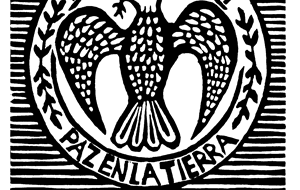Republicans – and some “Blue Dog” Democrats are bound and determined to stop any kind of health care reform, having made their deal with the devils of the insurance/medical industry giants.
So far two different bills have passed in major committees in Congress. But those bills have stalled in two other equally important committees. Of particular note, the Senate Finance Committee stands as the final major hurdle to producing a final bill.
Both bills contain a lot of the same important reforms: investments in health information technology, ending discrimination by insurers against policy holders who have preexisting conditions and making insurance coverage portable from place to place and job to job.
Plus, both bills expand choices of insurance plans by creating a market place of options, including a publicly-funded and run insurance plan.
While some details about the public option differ, it seems that people who earn between 133 percent to 400 percent of poverty (or individuals earning less than $43,000 or a family of four below $89,000) will be eligible for a sliding scale of discounts in the public insurance plan based on income. (People below that level would be eligible for an expanded Medicaid program.)
Essentially, most people choosing the public insurance plan would pay similar premium rates and expenses that a typical retired Medicare recipient pays now. Both bills mandate that beneficiaries of the public option have the same choices of doctors and care they would have in a private plan.
The president favors three key reforms that will pay for the program. First, end federal overpayments to the profiteering Medicare Advantage programs created by the Republicans and the Bush administration in 2005.
Second, fix Medicare and Medicaid repayment procedures to create parity and fairness across the country.
Third, limit tax deductions for the very richest one percent of Americans, a tax code reform that would restore the levels signed into law by Ronald Reagan in 1986.
Not only are these funding mechanisms important to making sure the public option is viable, they are important to remedying the very worst economic policies adopted by the Bush administration: deregulation, the creation of bloated and expensive privatized programs and tax cuts for the rich paid for by the rest of us.

MOST POPULAR TODAY

‘Warning! This product supports genocide’: Michigan group aims to educate consumers

“Trail of Tears Walk” commemorates Native Americans’ forced removal

After months of denial, U.S. admits to running Ukraine biolabs

Ohio: Franklin County treasurer attends Netanyahu meeting, steps up Israel Bond purchases

Hold the communism, please: SFMOMA’s Diego Rivera exhibit downplays artist’s radical politics





Comments